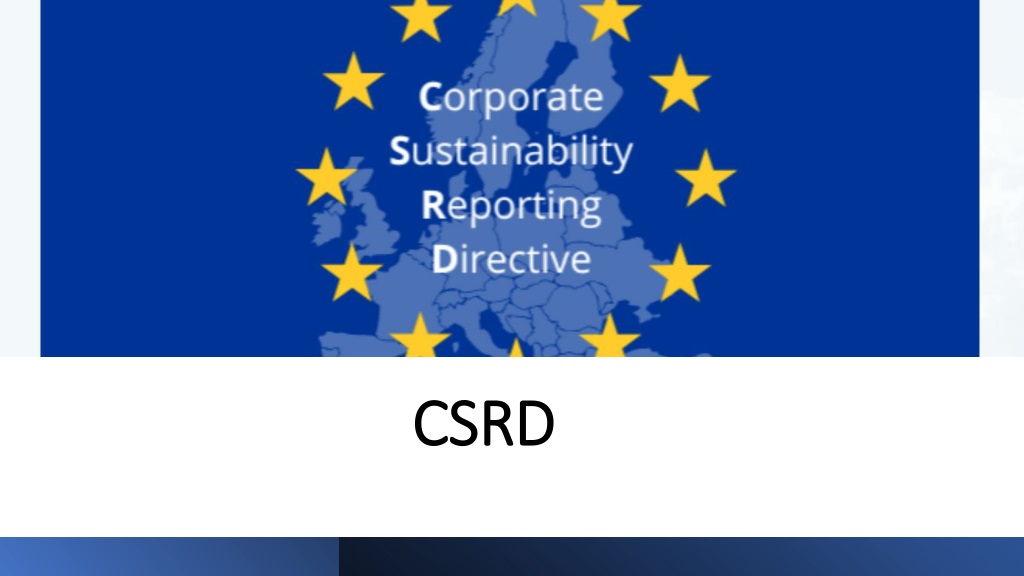

0 likes | 19 Views
The CSRD is a legislative proposal by the European Commission aiming to enhance sustainability reporting standards for EU companies. It expands reporting scope to include SMEs, introduces mandatory reporting standards, and promotes digital reporting for better accessibility and analysis. The directive leverages coercive, mimetic, and normative pressures to drive sustainability performance. Assumptions include transparency, stakeholder engagement, standardization for comparison, long-term value creation, and market trust. It aligns with global reporting initiatives like GRI, SASB, and IIRC.

E N D
CSRD CSRD
• CSRD is a legistlative proposal put forth by the European Commission. • Aims to enhance & standardized sustainability reporting requirements for companies within EU. • Proposes changes to improve quality, comparability and the sustainability. Corporate Corporate Sustainability Sustainability Reporting Directive Reporting Directive
Expanded Scope: broaden the scope of reporting (include SMEs) Key Key Mandatory Reporting Standards: based on international framework features features Digital Reporting: To faciliate the accessibility, usability and analysis of sustainability. Harmonization with other EU initiatives: align with EU initiative.
1.Coercive pressure: -It introduces a legislative requirements -Requires mandating companies to report their sustainability performance. Pressure Pressure (Institutional (Institutional Perspective) Perspective) -Feel compelled and ensure compliance the law. 2.Mimetic Pressure: -Imitating pressure from the actions of peers or industry leaders & gaining recognition for their sustainability. 3. Normative Pressure: -pressure from social norms ,expectations and values. -stakeholders : employees, consumers, civil society organizations, investors.
Pressure (Institutional Perspective) Pressure (Institutional Perspective)
CSRD assumptions CSRD assumptions • Transparency and Accountability: stakeholders can make more informed decisions from the repot • Stakeholder Engagement: including a broader range of stakeholders in the reporting process • Standardization of Comparison: standardizing reporting frameworks will be instrumental in facilitating meaningful comparisons between companies and Industries.
CSRD assumptions CSRD assumptions (cont) • Long term value creation: Focusing on sustainability reporting encourages companies to integrate sustainability into their core business strategies, contributing to long-term value creation. • Market Trust and confidence Enforcing standardized sustainability reporting builds trust and confidence in the markets.
The primary source of legitimacy
Other sources of legitimacy • Global Reporting Initiative (GRI) (most widely used since late 1990s): help businesses and other organizations understand and communicate their environmental, social, and governance (ESG) impacts in a comprehensive and standardized manner. • Sustainability Accounting Standards Board (SASB) (used for sustainability accounting since 2011): develop sustainability accounting standards for companies to disclose material environmental, social, and governance (ESG) information to investors to make informed decisions about companies' long-term value and risk. . • International Integrated Reporting Council (IIRC) (used for integrated reporting since 2010): provide a holistic view of an organization's strategy, performance, governance, and prospects by considering financial and ESG factors.